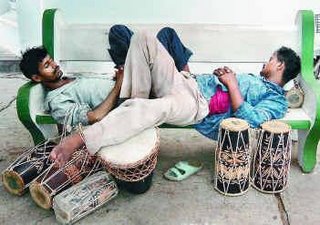Sound Sleep Improves Memory

A good night’s sleep helps improve memory, reveals a recent study in the US. The researchers led by Matthew Walker of Beth Israel Deaconess Medical Centre studied 12 healthy, college-going subjects and taught them a sequence of skilled finger movements similar to playing a piano scale, according to science portal EurekAlert. After a 12-hour period of wakefulness or sleep respectively, the subjects were tested on their ability to recall these finger movements while a magnetic resonance imaging (MRI) measured the activity of their brain, it said. The MRI results showed that while some areas of the brain were distinctly more active after a period of sleep, other areas were noticeably less active. But together, the changes brought about by sleep resulted in improvements in the subjects’ motor skill performance, So all studies pointing that sound sleep can improve all level perfomance in people's life.
Sound Sleep can solve all your mentally and healthy problems.
